A cat’s grooming is generally the least of any owner’s concerns until they take their daily habits too far. Overgrooming can have medical causes such as skin allergies, but it can also be caused by stress and anxiety.
You can’t always anticipate a cat’s overgrooming, but if you read the signs, you can take action to deal with the problem as soon as possible. Here are the primary reasons your cat could be chewing her fur off and how to help.
![]()
The 5 Reasons Why Your Cat Is Chewing Her Hair Off & How to Stop It
1. Fleas and Other Parasites
Fleas are one of the most prevalent parasite problems cats endure, particularly cats that go outdoors. Adult fleas live on the cat and feed on their blood, the irritation can lead a cat to lick or bite at their fur. Some cats have an allergy to fleas which causes more intense itching every time they are bitten.
Alongside the sores and secondary infections that the scratching, licking and chewing may cause, cats can also ingest tapeworm eggs when they accidentally swallow an infected flea.
Other than fleas, parasitic organisms like ticks, lice, and mites, can cause irritation and overgrooming. Some parasites are visible to the naked eye while for others your vet might need to take some samples to examine under the microscope.
- Treating Flea Infestations
Your vet is your best resource for finding flea solutions for your cat. Your cat, along with any other cats, dogs and rabbits in the house will need to be treated with a species appropriate flea treatment. Never use a dog flea treatment on your cat, they often contain permethrin which is extremely toxic to cats. Prescription flea treatments from your vets are proven and effective products.
Your home will also need to be treated with a household flea spray as 95% of a flea infestation is in the home. Vacuum the house regularly and wash bedding on a hot wash.
As fleas can transmit worms, your cat should also have a worming medication at the same time. If they have broken, sore or infected skin your vet may also need to prescribe treatment for this.
2. Allergies
Although flea allergies are the most common in cats, they can also develop allergies to proteins in food and seasonal or non-seasonal environmental allergens like pollen, mold, and dust mites. Feline atopic skin syndrome (FASS) is the term used to describe allergic skin disease caused by allergens in the environment.
Over-grooming from severe itching is typical, potentially leading to sores and secondary infections.
- How to Treat Allergies
Food-related allergies require dietary changes. Diagnosing the allergy and pinpointing the protein causing the allergy involves elimination diet trials under the guidance of your vet.
For FASS, your vet might offer anti-itch medications such as corticosteroids or cyclosporine to relieve signs. Allergy blood tests and allergy skin tests are available to find out what is causing your cat’s allergic signs. Immunotherapy (allergy shots) can build up your cat’s tolerance to the allergens, decreasing the signs of allergies over time and reducing the need for temporary irritation relief.
If you need to speak with a vet but can't get to one, head over to PangoVet. It's an online service where you can talk to a vet online and get the advice you need for your pet — all at an affordable price!
3. Pain
Grooming may be a way for a cat to relieve a painful spot. If you notice other signs of mobility issues, like limping, your cat could be nursing an injury or licking and chewing their fur around an arthritic joint.
- How to Stop Fur Chewing from Pain
Your vet will prescribe the best recovery plan and pain relief based on your cat’s unique injury. Accommodating your cat with convenient access to resources will be crucial to prevent any behavioral issues and stress.
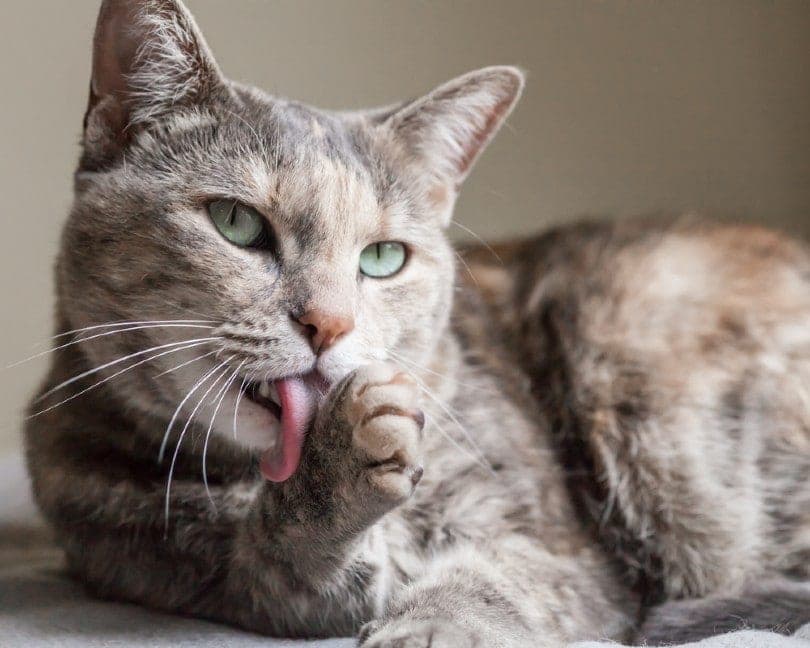
4. Psychogenic Alopecia
Psychogenic alopecia refers to a cat’s habit of overgrooming and pulling out hair due to mental or emotional stress. Uncertainty and anxiety generally stem from various environmental changes and perceived problems, including:
- Moving to a different house
- A new pet or baby
- Changes in furniture layout
- Shifts in the daily routine
- Conflict for resources between pets
- Outdoor animals
Psychogenic alopecia can be challenging to diagnose as it leads to physical and behavioral signs that could indicate other illnesses. Your vet will examine your cat and may run several tests to rule out underlying medical conditions.
- How to Stop Psychogenic Alopecia
Fixing the environment and routine will help your cat overcome stress-related problems, like overgrooming and chewing her fur. A cat needs a stable, predictable routine to stay at ease. If you can’t think of any changes to your schedule that might have upset your cat, you’ll ideally need to find and remove the stressor.
- Slowly introducing new pets to the house
- Giving cats safe spaces they can retreat to if they are stressed
- Providing enough litter boxes, feeding bowls, and sleeping spots in multi-cat households
- Closing blinds and blocking outdoor cats from view
Cats need to feel safe and secure. Behavioral therapy needs to be tailored to your individual cat and environment and your vet may refer you to a qualified cat behaviorist. You can sometimes desensitize your pet to adverse stimuli by associating them with treats, affection, and other desirable experiences. It can take time, but eventually, your cat can see the stressor in a new, more positive light. In some cases your vet may need to prescribe medications for a period of time to help.
At home, you can also try atmospheric elements like pheromone diffusers and cat-specific music to help calm your cat.
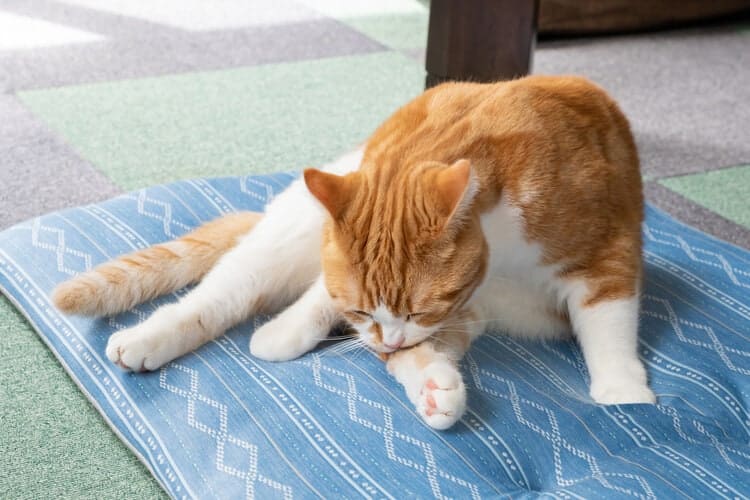
5. Boredom
Hair chewing related to boredom is similar to psychogenic alopecia, but the solution lies primarily in enrichment. If your cat is understimulated, excessive grooming leading to fur loss may accompany inappropriate behaviors as she looks for other outlets for built-up energy.
- Treating Hair Chewing from Boredom
Indoor cats are more prone to boredom since they have fewer opportunities to exercise. Owners have to fill in the gaps. Playtime enhances the cat-human bond and keeps cats stimulated, while enrichment devices provide options when they have to entertain themselves.
A sufficient rotation of toys and puzzle feeders can keep your cat mentally stimulated. Cat trees and climbing shelves provide suitable workout and scratching spaces, letting your cat release anxious energy.
Looking for toys that will cater to the many needs of your cat? The Hepper Hi-lo Cat Scratcher is one of our favorite cat products, and it will encourage your cat to get active. Its clever three-angle design offers multiple ways for your cat to climb, stretch, and exercise. Made of a sturdy plywood base and a replacement cardboard insert, this scratcher is an option that cats can enjoy for years to come. If your cat requires a little encouragement for self-play, the Hepper Catnip Mice Toy Set is a fantastic choice for their instinctual needs. Made with natural, bite-resistant hessian fabric and filled with organic catnip. Cats can satisfy their natural prey instincts while getting the physical activity they need to thrive.
| Image | Product | Details | |
|---|---|---|---|
Great for Exercise
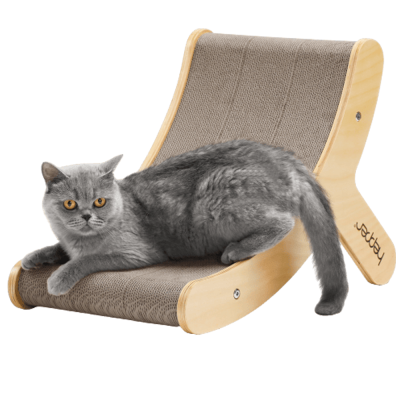
|
Hepper Hi-Lo Cat Scratcher |
|
Check Price |
Encourages Self-Play
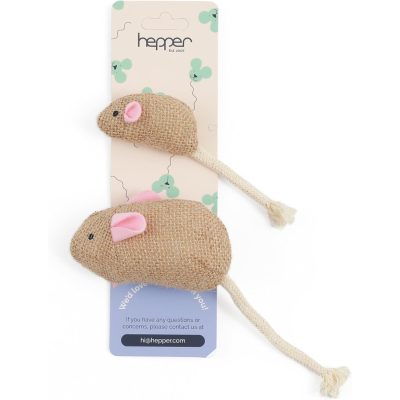
|
Hepper Catnip Mice Toy Set |
|
Check Price |
At Catster, we've admired Hepper for many years, and decided to take a controlling ownership interest so that we could benefit from the outstanding designs of this cool cat company!

Conclusion
Consistent grooming habits are expected from any cat, but hair loss from licking and chewing should warrant immediate investigation. Discuss your cat’s habits with your vet to find the root cause and develop a treatment strategy. When you recognize and deal with the issue as soon as possible, you can restore your cat’s quality of life and help them overcome the urgent need to chew their fur.
Featured Image Credit: Irzhanova Asel, Shutterstock
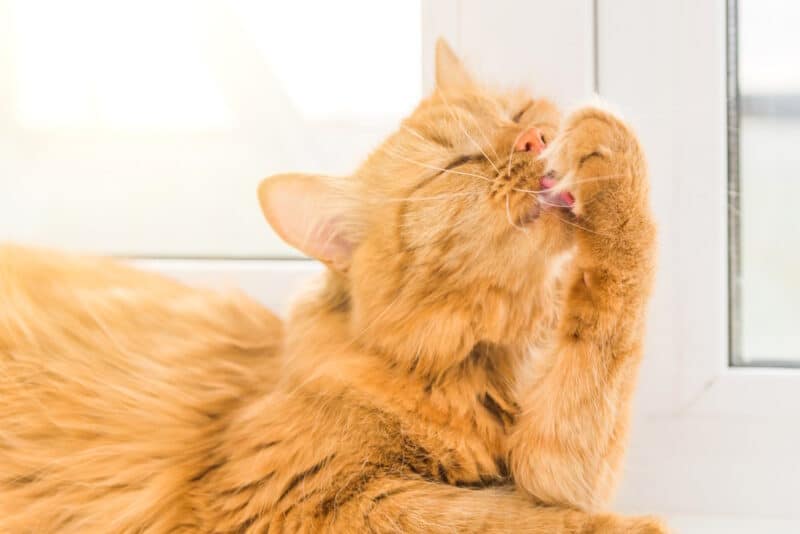




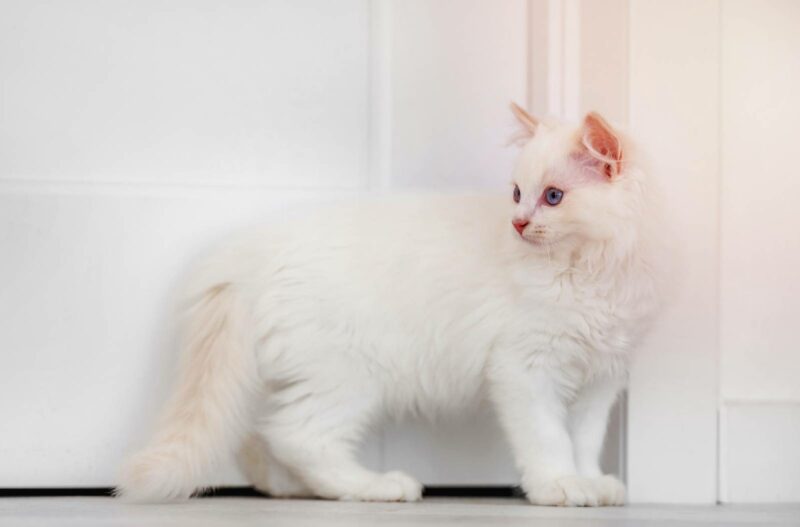
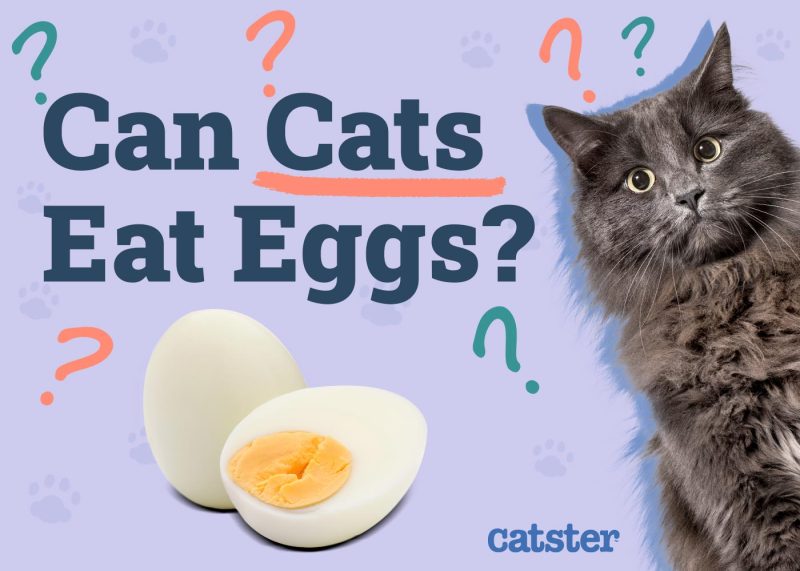

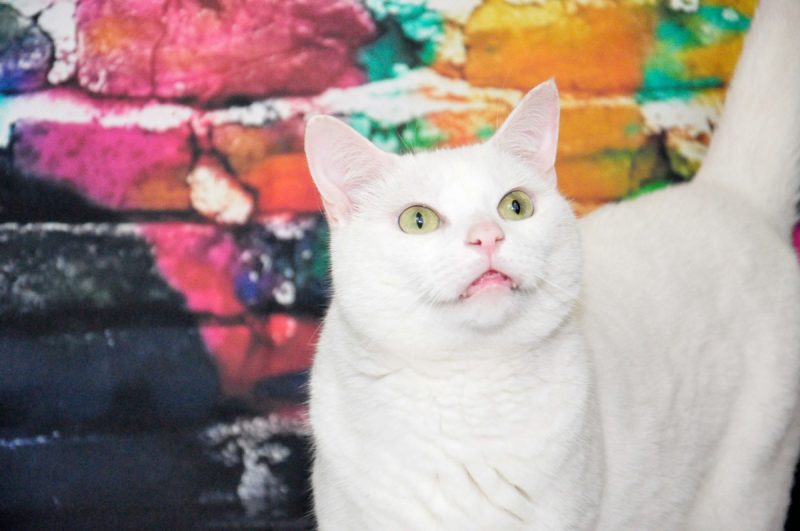
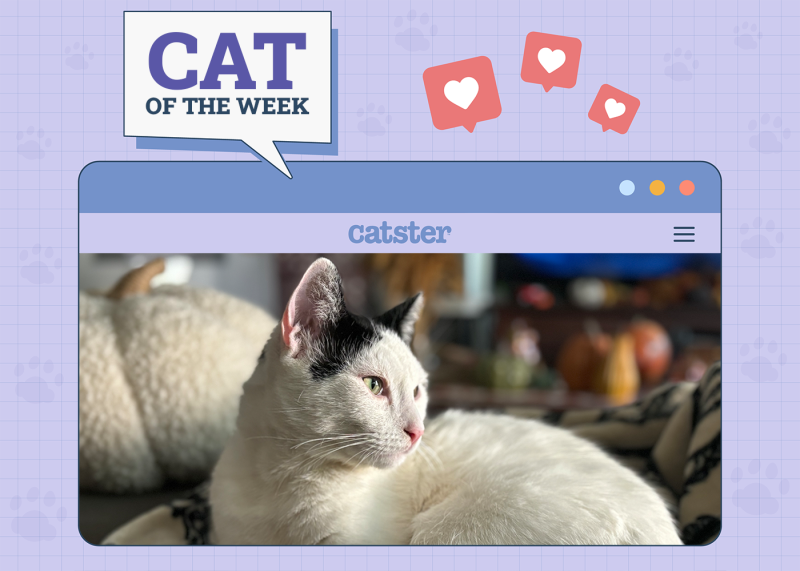
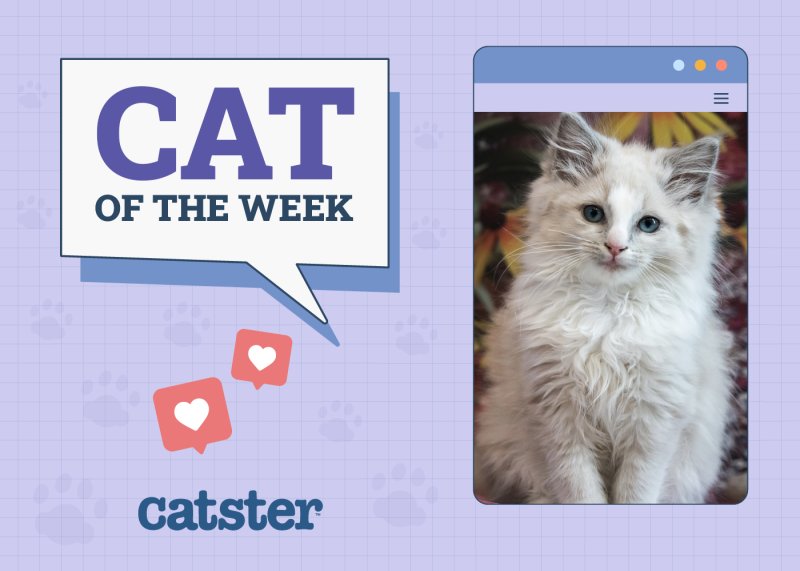
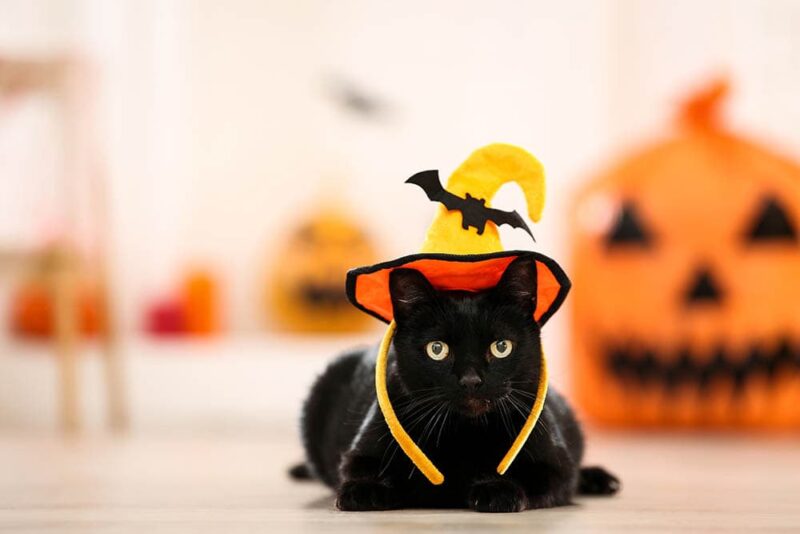
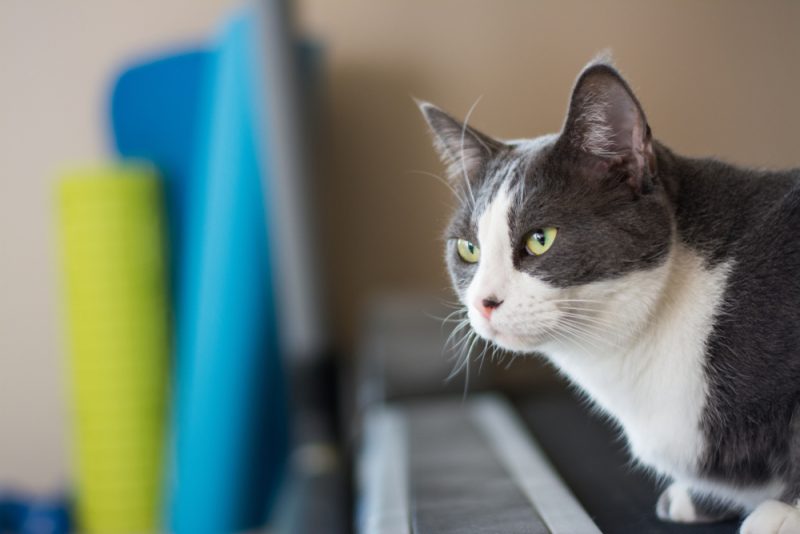
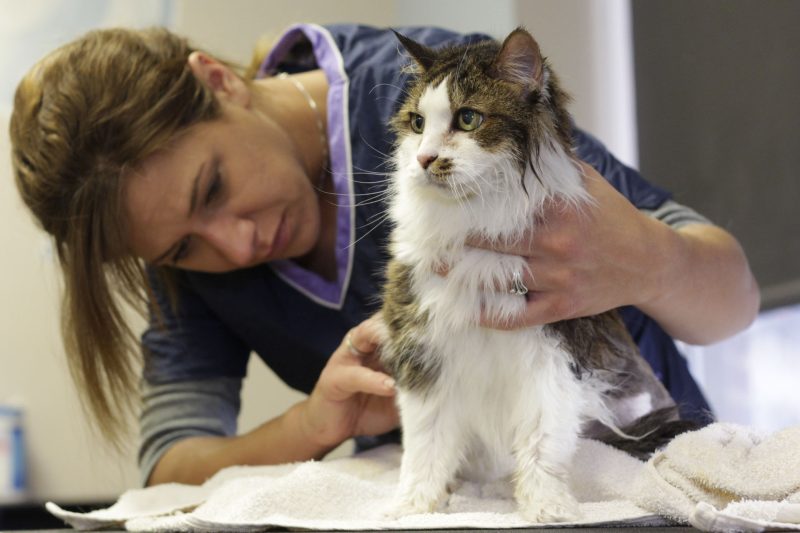

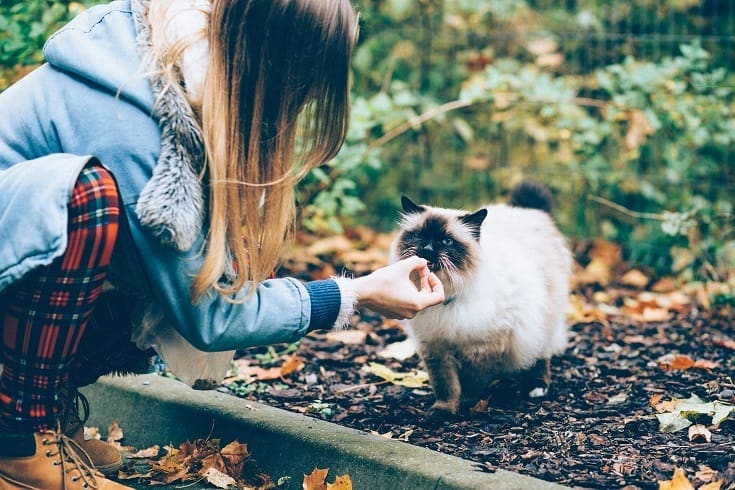
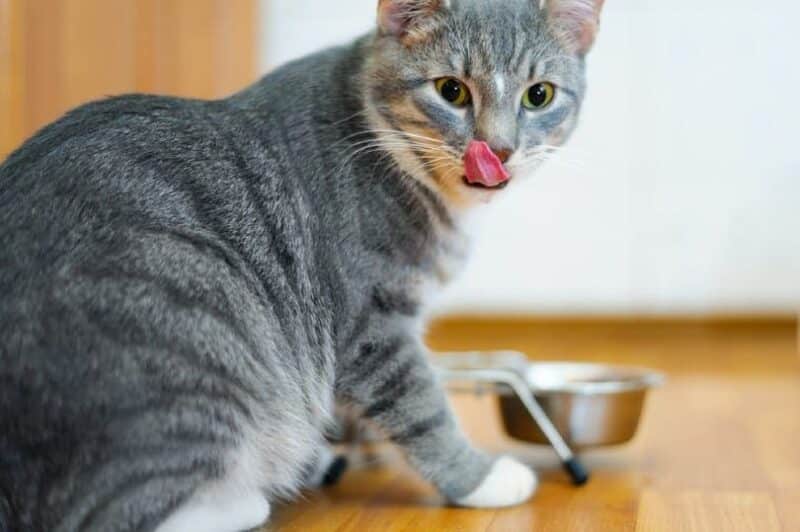
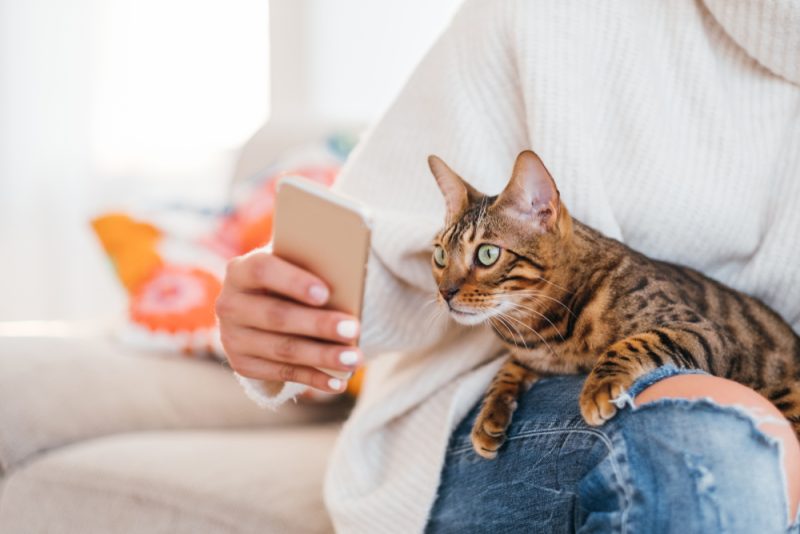

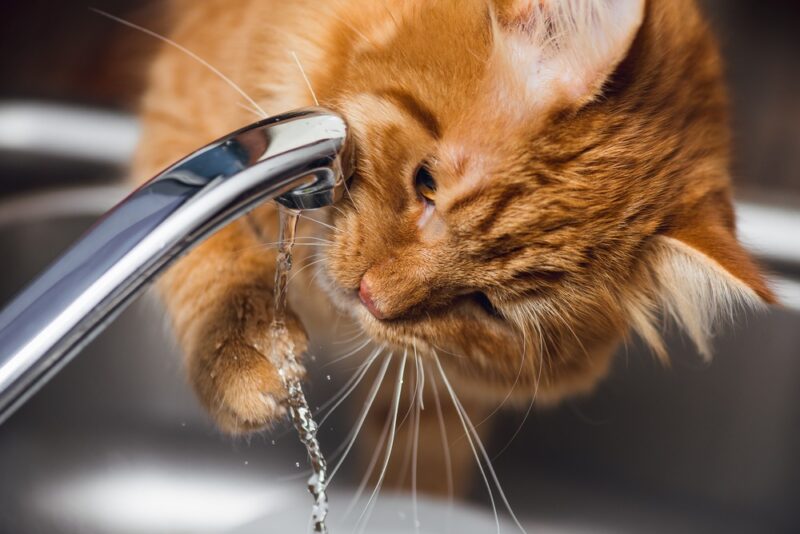
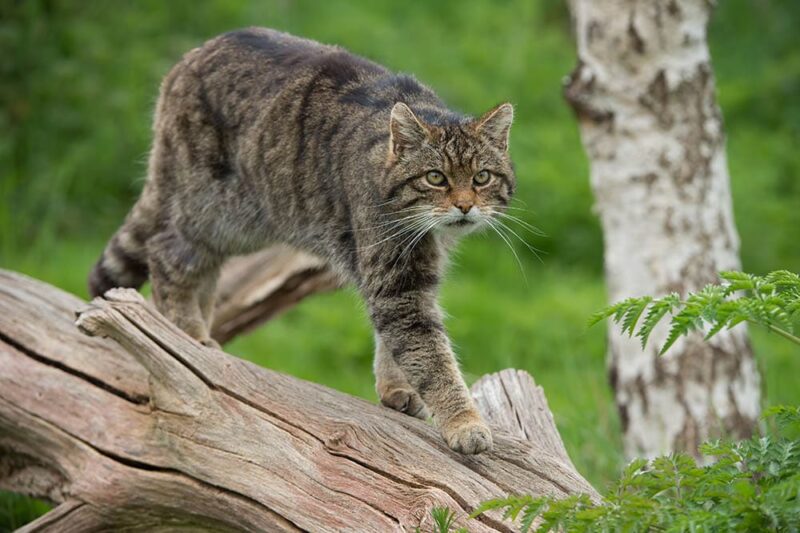



4 Responses
my cat chews/licks her fur off her legs and belly. how can i stop this behavior? please let me know. thanks
Sorry to hear about your cat’s behavioral problem Nickey R Grimes. Our post or overgrooming might shed some light:
https://www.catster.com/cat-health-care/why-is-my-cat-over-grooming/
https://www.catster.com/cat-health-care/cat-excessive-grooming/
https://www.catster.com/cat-behavior/why-is-my-cat-licking-her-fur-off/
You can also book a video call with a vet at www.pangovet.com to guide you through the next steps and help your help your cat.
my cat is biting all the fur off her belly she is 19 years old i have no money to take her a vet is there a spray or something besides a con for her head
We are sorry to hear about your senior cat’s problem. This definitively needs investigation she might be licking the area due to pain. Please try finding a humane association in your area to get her checked by a vet.